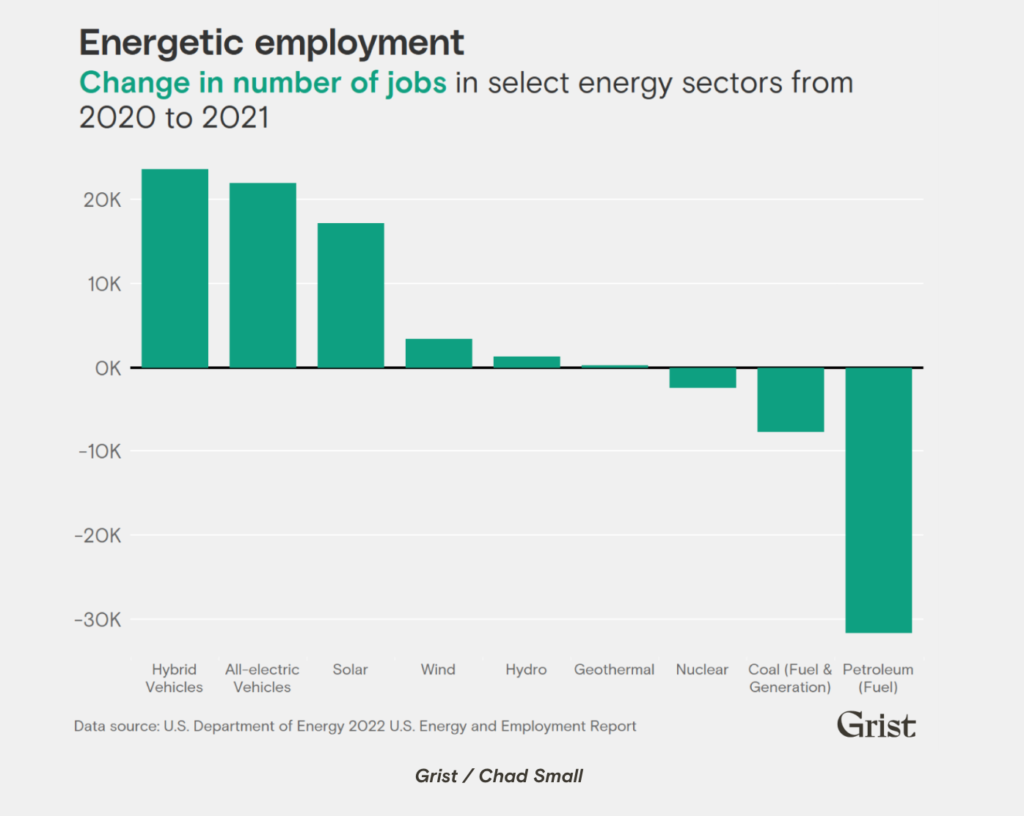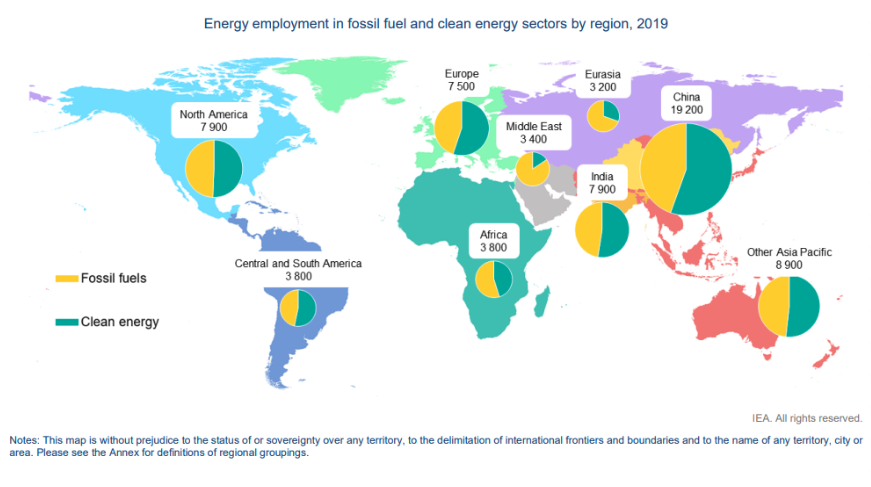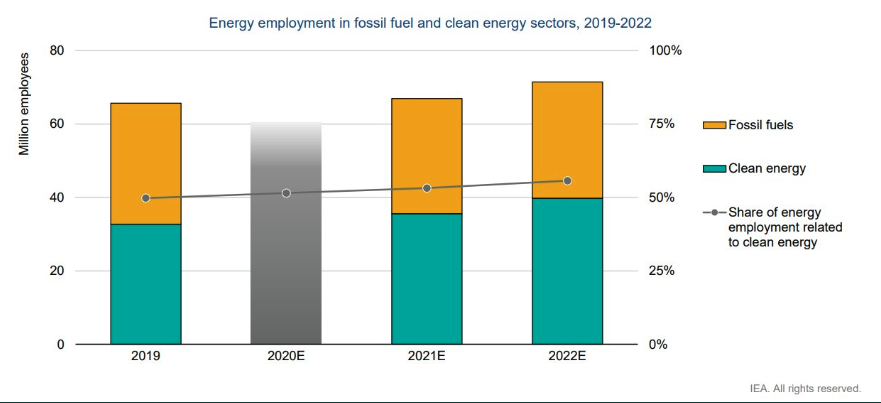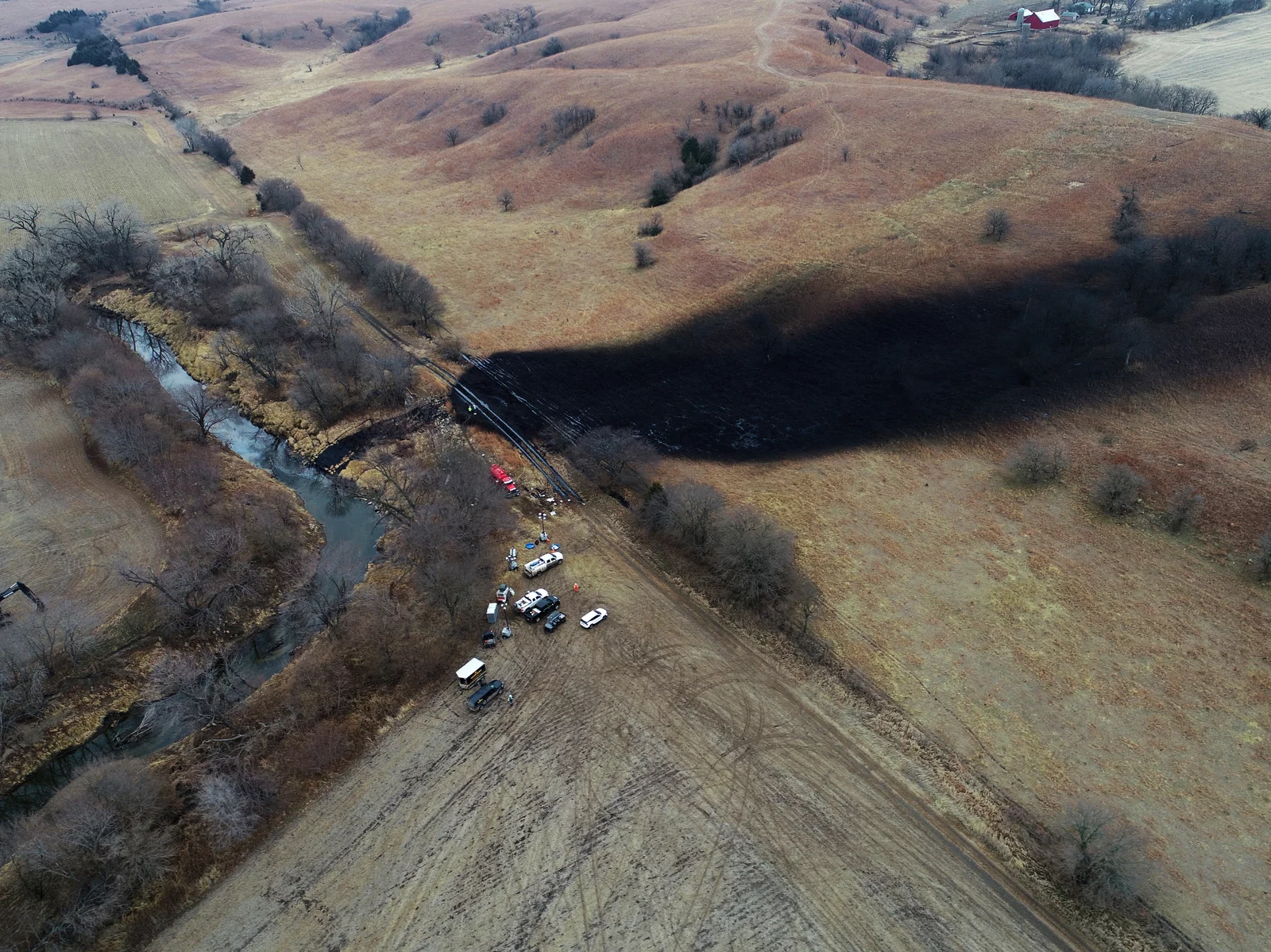Employees are Leaving the Oil and Gas Industry for Renewables
Natalie Johnson
Posted 03/01/2023
Transition from Fossil Fuels to Renewables
At the 2022 United Nations Climate Change Conference, the United States initiated the Net-Zero Government Initiative with a goal of achieving net-zero emissions no later than 2050. They invited other governments worldwide to implement the same goal and thus far 18 countries have joined the initiative which has greatly affected the oil and gas industry.
To achieve this goal, the renewable energy industry must expand, and it is already seeing rapid growth. The term “renewable energy” as it is used in this article includes solar, wind, geothermal, battery, hydro, and bio energy. For the purposes of this article the term “clean energy” will follow the International Energy Agency’s definition. “IEA defines clean energy workers as those in sectors including bioenergy supply, generating power from nuclear and renewable sources, electricity grids and storage, electric vehicles manufacturing and energy efficiency.”
As of 2019 there are over 65 million individuals working in the global energy sector and as of 2022 clean energy jobs account for more than half of employment in the energy sector with the largest potential for job creation. To reach net-zero emissions by 2050, the clean energy sector must create 14 million new jobs worldwide by 2030.
While the renewable energy industry is growing, the oil and gas industry has taken a major hit the last couple of years.
The oil and gas industry has roughly 700,000 fewer workers in 2022 than the six years prior, a decline of over 20%.
Between March and August of 2020, there were 107,000 oil and gas layoffs. This marks the fastest rate of layoffs in the industry’s history and doesn’t include the number of individuals furloughed or receiving salary reductions. Most of these lost positions are not expected to return to the industry.
Why the Shift?

As the renewable energy industry expands, they are seeing a large portion of incoming employees transitioning from a career in oil and gas to renewables. There are several reasons for this shift:
Pandemic
The oil and gas industry faced unprecedented shock when the pandemic hit in 2020 with the demand for diesel, gasoline, and jet fuel plunging to record lows. The extreme oversupply of oil and low demand left companies with nowhere to store excess barrels of oil and for the first time US oil prices fell below zero.
Companies across the United States have gone bankrupt, shut down wells, and made thousands of oil and gas layoffs. In 2020 alone nearly 160,000 workers were laid off and have yet to return as companies continue to tighten their budgets. The industry still hasn’t recovered to pre-pandemic levels.
Because of the instability in the oil and gas industry during the last few years investors have shifted to support renewables. Returns were very poor during the pandemic and the Russian invasion of Ukraine pushed countries to invest in clean energy that can be produced domestically, according to International Energy Agency Executive Director Fatih Birol.
Legislation
The Inflation Reduction Act, which was enacted in August of 2022, aims to invest spending into domestic energy production while promoting clean energy. This will mainly be done through tax credits, and it is estimated to create over half a million jobs in clean energy. The country is already seeing swift response to the bill as several major automakers have announced multiple electric vehicle battery plants will be located in the United States. Some experts believe the bill will help triple the US renewable electricity capacity in just ten years.
Climate Change
The International Energy Agency believes efforts to decarbonize the energy sectors are the driving factor for the shift. The 18 countries that have joined the Net-Zero Government Initiative represent more than 70% of global emissions. The goal is to effectively remove greenhouse gas emissions, which makes clean energy critical to this initiative.

The New York Times reported that in more than a dozen interviews, energy workers and executives said they transitioned to renewable energy because they were no longer willing to tolerate the extreme highs and lows of oil and gas prices, and many were concerned about climate change which is primarily caused by the burning of fossil fuels.
The link between jobs in the oil and gas industry and prices is now twice as powerful as it was in the 1990’s.
Transferrable Skills
As renewable energy companies continue to expand following the initial effects of the pandemic, they are searching for highly skilled workers.
A survey of 17,000 global energy industry companies, recruiters, and employees found that 56% of employees working in oil and gas wanted to transition to a career in renewables. These professionals possess highly in-demand skills that will assist them in the transition, with the most sought out of those skills being project management, engineering, construction, finance, and operations.

Fervo, a geothermal company based in Houston, Texas reported that half of their employees came from fossil fuel companies including BP, Hess, and Chesapeake Energy. Their CEO, Tim Latimer, stated “Whenever we post a position like geologist, or drilling engineer or geophysicist, you name the oil company, and we have a handful of applicants from every single one.”
Even universities are noticing the shift from oil and gas to renewables. A Texas Tech University Professor, Lloyd Heinze found that from 2017-2021 the number of students graduating from petroleum engineering programs dropped 83%.
Another survey of 3.5 million MBA students reported that from 2006-2020 the number of business school graduates pursuing a career in the oil and gas field fell by 40%.
Will Renewables topple the Oil and Gas Industry?
While the oil and gas industry has faced brain drain and many hardships over the last few years, executives are confident the industry will recover and may outweigh renewables for a long time.
Many renewable energy companies note they lack experienced field technicians and engineers which has hindered companies from meeting their growth goals. The largest obstacle they have is human capital, the push for net-zero has left everyone scrambling to retain skilled workers and obtain green skills which are in short supply.

In fact, the renewable energy sector is currently reliant on the oil and gas industry to provide vital talent as many skills between the industries are transferable. 51% of individuals working in the renewable energy sector have shifted into the industry in the last year and many workers report the skills they concentrated on in their oil and gas jobs have translated well to the renewable energy industry.
Miguel Febres, a petroleum engineer who worked in the oil industry for nearly 20 years and is now a planner for wind and solar projects stated, “The basic are the same, we install foundation, we install turbines, we build roads, we lay cables.”
Noticeable shifts in the economy, legislation, and employment statistics, have left no room for doubt, the push for renewables is here but oil and gas aren’t going anywhere in the near future.
What have you noticed?
While the data concurs a shift from oil and gas to renewable energy is occurring, I’m curious to see what our readers have noticed as many of you are in the energy industry.
Have you noticed a shift in attitudes at your company?
Have you considered seeking employment in the renewable industry?
Do you think oil and gas is really going to lose out to renewable energy?
Are oil and gas companies investing their time and money to explore renewable solutions?
Is your company pushing for clean energy?
Have you transitioned from fossil fuels to renewables or vice versa?
Have your skills transferred between industries?
How are oil and gas layoff effecting you?
Feel free to leave your thoughts and opinions about oil and gas layoffs in the comments on LinkedIn, we want to hear from you!

Midweek with Maintenance World
Looking for a midweek break? Keep up with the latest news brought to you every Wednesday by the Maintenance World crew.

Natalie Johnson
Natalie Johnson is the previous editor/website administrator for MaintenanceWorld.com, and is currently a student at Campbell University Norman Adrian Wiggins School of Law.
Related Articles

Cardinal Manufacturing, Helping to Bridge the Manufacturing Skills Gap

South Carolina Ranked as the #1 State for Manufacturing

The Decade of American Reshoring

HBD Condition Monitoring Devices at the center of Ohio Derailment

Failure Analysis Uncovers the Cause of the Keystone Oil Spill

Ohio Foundry Explosion
Natalie Johnson
Lorem ipsum dolor sit amet, consectetur adipiscing elit. Nullam rhoncus, odio eget elementum volutpat, enim risus vulputate mauris, et luctus augue massa et sapien. Lorem ipsum dolor sit amet, consectetur adipiscing elit. In efficitur mi in erat lacinia tincidunt. Cras vulputate nec nulla vitae pretium. Integer porttitor mattis justo at fringilla. Donec eleifend massa turpis, at auctor mi pulvinar sit amet. Cras ut turpis id arcu fringilla gravida.




